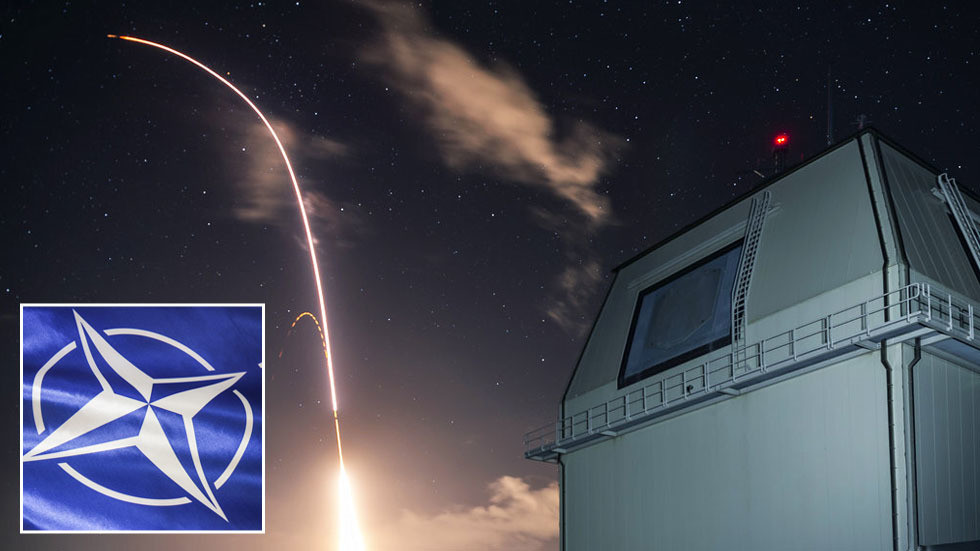angelburst29
The Living Force
NATO envoys will discuss the future of the Open Skies treaty on Friday after the United States announced it would quit the 35-nation pact that allows unarmed surveillance flights over member countries, an official of the defence alliance said.
NATO to discuss Open Skies treaty after U.S. announces withdrawal
May 22, 2020 - Senior officials in President Donald Trump’s administration, which says Russia has repeatedly violated the treaty’s terms, said on Thursday that Washington would formally pull out of Open Skies in six months.
The U.S. move deepens doubts about whether Washington will seek to extend the 2010 New START accord, which imposes the last remaining limits on U.S. and Russian deployments of strategic nuclear arms to no more than 1,550 each. It expires in February.
U.S. allies in the North Atlantic Treaty Organization (NATO) have pressed Washington not to leave the Open Skies pact, whose unarmed overflights are aimed at bolstering confidence and providing members forewarning of surprise military attacks.
The NATO official recalled concern raised at a 2018 summit of alliance leaders that “Russia’s selective implementation” of Open Skies was undermining their security.
“In particular, we are concerned that Russia has restricted flights over certain areas,” the official said. “Allies continue to consult closely on the future of the treaty and the North Atlantic Council will meet today to discuss the issue.”
Russia says U.S. withdrawal from Open Skies treaty undermines international security
May 22, 2020 - MOSCOW - The U.S. withdrawal from the Open Skies treaty undermines international security, Russian Deputy Foreign Minister Sergei Ryabkov said on Friday.
Ryabkov said Washington had provided no facts to back up its assertion that Moscow has repeatedly violated the pact’s terms.
The United States announced its intention on Thursday to withdraw from the 35-nation Open Skies treaty that permits unarmed surveillance flights over member countries, the Trump administration’s latest move to pull the country from major global agreements.
US army resumes Europe exercises after pandemic pause | DefenceTalk
May 14, 2020 - US military exercises in Europe that were suspended because of the coronavirus pandemic will go ahead next month but in a scaled-back format, the Army said Wednesday.
US-Polish exercise Allied Spirit, originally planned for May, will see the mobilization of 6,000 soldiers from the two countries from June 5-19 at the Drawsko Pomorskie base in the north of Poland, the army said in a statement.
“All COVID-19 precautionary measures will be taken to ensure the health and protection of participating armed forces and the local population,” it said.
The 4,000 US soldiers that will take part had already traveled to Europe for Defender-Europe 20, the biggest US military deployment in Europe in 25 years.
But the pandemic prompted the Pentagon to freeze all US military movement around the world.
The new exercise will feature a Polish airborne operation and a US-Polish division-size river crossing.
By the time US troop movements to Europe were halted in early March, more than 90 percent of the equipment earmarked for Defender-Europe 20 had been loaded on aircraft or ships bound for Europe.
More than 6,000 soldiers and 3,000 pieces of equipment arrived in Europe, and over 9,000 vehicles were moved to training areas in Germany.
“Overall, despite the adjustment to the exercise due to COVID-19, many of the strategic readiness objectives were met,” the army statement said.
Over the coming months, more exercises will be held to use the resources mobilized for Defender-Europe 20, which originally called for the dispatching of 20,000 US troops as far afield as Ukraine and the Baltic states.
This amounts to a daunting logical challenge and a special deployment that reflects the strategic upheaval triggered by Russia’s annexation of Crimea in 2014.
Defence Forum & Military Photos - DefenceTalk
Russian Navy Discussions and Updates
NATO to discuss Open Skies treaty after U.S. announces withdrawal
May 22, 2020 - Senior officials in President Donald Trump’s administration, which says Russia has repeatedly violated the treaty’s terms, said on Thursday that Washington would formally pull out of Open Skies in six months.
The U.S. move deepens doubts about whether Washington will seek to extend the 2010 New START accord, which imposes the last remaining limits on U.S. and Russian deployments of strategic nuclear arms to no more than 1,550 each. It expires in February.
U.S. allies in the North Atlantic Treaty Organization (NATO) have pressed Washington not to leave the Open Skies pact, whose unarmed overflights are aimed at bolstering confidence and providing members forewarning of surprise military attacks.
The NATO official recalled concern raised at a 2018 summit of alliance leaders that “Russia’s selective implementation” of Open Skies was undermining their security.
“In particular, we are concerned that Russia has restricted flights over certain areas,” the official said. “Allies continue to consult closely on the future of the treaty and the North Atlantic Council will meet today to discuss the issue.”
Russia says U.S. withdrawal from Open Skies treaty undermines international security
May 22, 2020 - MOSCOW - The U.S. withdrawal from the Open Skies treaty undermines international security, Russian Deputy Foreign Minister Sergei Ryabkov said on Friday.
Ryabkov said Washington had provided no facts to back up its assertion that Moscow has repeatedly violated the pact’s terms.
The United States announced its intention on Thursday to withdraw from the 35-nation Open Skies treaty that permits unarmed surveillance flights over member countries, the Trump administration’s latest move to pull the country from major global agreements.
US army resumes Europe exercises after pandemic pause | DefenceTalk
May 14, 2020 - US military exercises in Europe that were suspended because of the coronavirus pandemic will go ahead next month but in a scaled-back format, the Army said Wednesday.
US-Polish exercise Allied Spirit, originally planned for May, will see the mobilization of 6,000 soldiers from the two countries from June 5-19 at the Drawsko Pomorskie base in the north of Poland, the army said in a statement.
“All COVID-19 precautionary measures will be taken to ensure the health and protection of participating armed forces and the local population,” it said.
The 4,000 US soldiers that will take part had already traveled to Europe for Defender-Europe 20, the biggest US military deployment in Europe in 25 years.
But the pandemic prompted the Pentagon to freeze all US military movement around the world.
The new exercise will feature a Polish airborne operation and a US-Polish division-size river crossing.
By the time US troop movements to Europe were halted in early March, more than 90 percent of the equipment earmarked for Defender-Europe 20 had been loaded on aircraft or ships bound for Europe.
More than 6,000 soldiers and 3,000 pieces of equipment arrived in Europe, and over 9,000 vehicles were moved to training areas in Germany.
“Overall, despite the adjustment to the exercise due to COVID-19, many of the strategic readiness objectives were met,” the army statement said.
Over the coming months, more exercises will be held to use the resources mobilized for Defender-Europe 20, which originally called for the dispatching of 20,000 US troops as far afield as Ukraine and the Baltic states.
This amounts to a daunting logical challenge and a special deployment that reflects the strategic upheaval triggered by Russia’s annexation of Crimea in 2014.
Defence Forum & Military Photos - DefenceTalk
Russian Navy Discussions and Updates




